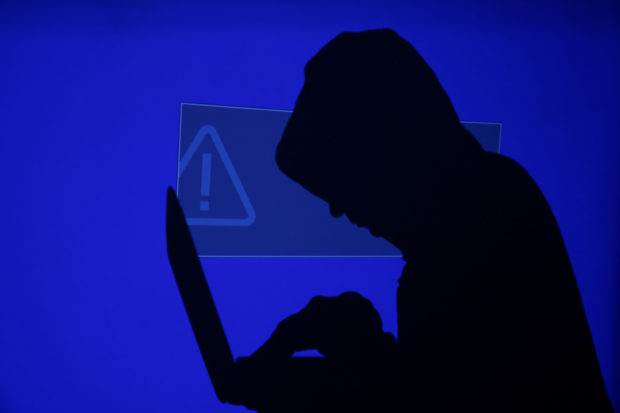
The National Privacy Commission (NPC) is considering expanding data privacy education outside of Metro Manila to bolster the country’s cybersecurity measures. (REUTERS FILE PHOTO)
MANILA, Philippines — The National Privacy Commission (NPC) is considering expanding data privacy education outside of Metro Manila to bolster the country’s cybersecurity measures.
NPC Deputy Commissioner Leandro Aguirre stressed the need to improve the protection of Filipinos’ sensitive data following several attempted cyberattacks on government websites earlier this month.
“We want to democratize access to privacy education,” he said in a statement Tuesday.
Aguirre also said the data privacy training will be designed to be both “operational and practical.”
The NPC mentioned plans to release teaching materials on the data privacy course before the nationwide observation of Privacy Awareness Week in May so groups outside of Metro Manila can prepare and eventually conduct their courses using its provided resources.
READ: NPC to launch school caravan on data privacy
It also intended to immediately draft guidelines on children’s privacy, using a “risk-based approach” and taking into account “the unique cultural and sociological factors of Filipinos.”
It will likewise encourage public participation as it eyes launching the “Calls For Public Input In Addition To Public Consultation” initiative to aid NPC’s drafting of policies.
“We want to institutionalize this because the input coming from the private sector from people that are actually affected by these issuances (are) very valuable,” the NPC official explained.
Attacks on private data
Some government agencies have been subjected to cyberattacks to steal sensitive data from their employees and clients in the past months.
In September 2023, hackers hit the Philippine Health Insurance Co. (PhilHealth), took down its systems and blocked access to its website.
The following month, the NPC revealed that 730 gigabytes of data had been leaked from PhilHealth’s database, including the personal information of its employees.
READ: Leaked Philhealth data ‘staggering,’ says NPC
In February of this year, hackers traced to addresses located in China attempted to breach the online systems of the Overseas Workers Welfare Administration and Philippine Coast Guard, as well as the official website of President Ferdinand Marcos Jr.
READ: Cyber attacks on gov’t websites possibly due to sea row with China – DICT
This string of cyberattacks prompted groups and government officials to urge the Department of Information and Communications Technology to fortify the firewalls of government agencies’ websites.